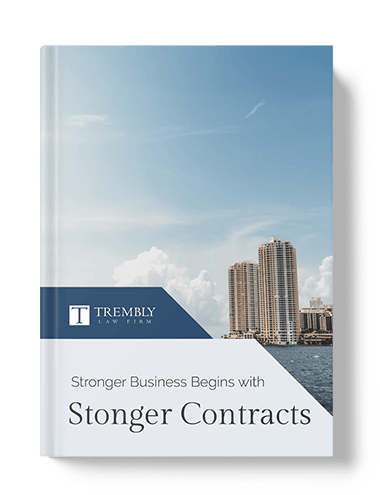In 2013, the Florida Legislature unanimously adopted CS/SB 1300, a rewrite of Florida’s limited liability company statute. It completely overhauls Florida’s current LLC act. This revision was made in an attempt to keep Florida competitive with the rest of the country, hopefully retaining LLCs that might otherwise have left Florida.
The Act became effective on on January 1, 2014, and currently applies only to LLCs organized on or after that date or for LLCs organized prior to that date that elect to come under the Act. On January 1, 2015, all LLCs organized in Florida will be subject to the Act.
Limited Liability Companies Are Popular in Florida
Limited liability companies are a popular way of organizing a business for several reasons, including the flexibility afforded by their use and the tax benefits they provide via pass-through taxation.
LLCs provide limited liability for members of the LLC for the debts of the company. Members of an LLC have lots of flexibility in regards to operational matters of the company.
According to the Florida Department of State, there are currently approximately 705,000 LLCs in Florida, and this number is growing exponentially.
What’s Changed?
All LLC laws provide default rules that apply in the absence of specific provisions in an Operating Agreement among the members. However, there are some provisions that cannot be overridden by the parties in an Operating Agreement. CS/SB 1300 expands this list. For instance, under the new Act, an LLC cannot have an Operating Agreement that provides for indemnification for some types of wrongful conduct.
Barring a provision to the contrary in the Articles of Organization or Operating Agreement, all Florida LLCs are member-managed, meaning all members have authority as agents of the LLC. Third parties may need to see a copy of the LLC’s Operating Agreement in order to determine if an LLC is manager-managed or member-managed.
An LLC may file a Statement of Authority in order to recognize who has authority to bind the LLC. It may also file a statement of denial to rescind a previous grant of authority.
The term “managing member” no longer exists. LLCs are now either manager-managed or member-managed. Members are not entitled to compensation for services unless there is an agreement to the contrary.
If an LLC is manager-managed, a majority of members is needed to approve any action that’s not part of the ordinary course of the LLC’s activities.
A member may dissociate by withdrawing at any time, but an LLC can collect damages against a member who wrongfully dissociates. A member who has disposed his member interests is no longer considered a member, and the other members are required to vote to dissociate him.
The grounds for judicial dissolution and the appointment of receivers and custodians are clarified. A member can seek judicial dissolution as a remedy when those in control of the company are acting fraudulently or illegally, when the company is itself engaging in illegal activities, when it’s not practical to carry on the activities of the LLC in accordance with its Operating Agreement, or when company assets are being misappropriated.
Judicial dissolution is allowed in the event of a deadlock between the managers or members if the deadlock is not breakable and is causing or may cause irreparable injury to the LLC. The new law allows a “deadlock sale” to deal with situations where the operating agreement does not lay out what should happen when there is such a deadlock. The old provision — which permitted a creditor to request judicial dissolution 1) if the creditor had a judgment that had not been paid and the LLC was insolvent or 2) where the LLC admitted that the creditor’s claim was due but the company was insolvent — has been eliminated.
The Act provides new guidelines for handling the dissolution of an LLC, including paying its debts and selling its assets. It also gives guidance on how to properly serve process on an LLC.
Other new items:
- Provisions for the appointing of special litigation committees.
- Guidelines for dealing with conversions and mergers.
- Addition of events triggering appraisal rights and clarifications to the procedural aspects thereof.
- “Shelf LLCs” are not allowed. An LLC needs to have a member when filing Articles of Organization.
What Remains?
The fiduciary duties of the existing law overall remain intact, except one duty of care exception regarding willful misconduct.
Barring explicit provisions to the contrary, a member still has agency authority within the LLC. The new Act does permit the filing of Statements of Authority as notification of authority within the LLC. The default still remains, however, that without notice to the contrary (for instance, by means of a Statement of Denial or a Statement of Authority), members of a member-managed LLC are agents of the organization, and therefore have implicit agent authority.
What You May Need To Do
The new Act makes Florida a more desirable business location. Owners of existing LLCs, especially those with “managing members,” should talk to a lawyer to see if there is a need to revise their Articles of Organization or Operating Agreements. Third parties doing business with Florida LLCs need to talk to a lawyer about changes that may be necessary in their contracts with Florida LLCs.
If you own an LLC, give us a call today to discuss these changes and how they will apply to your business specifically!

















